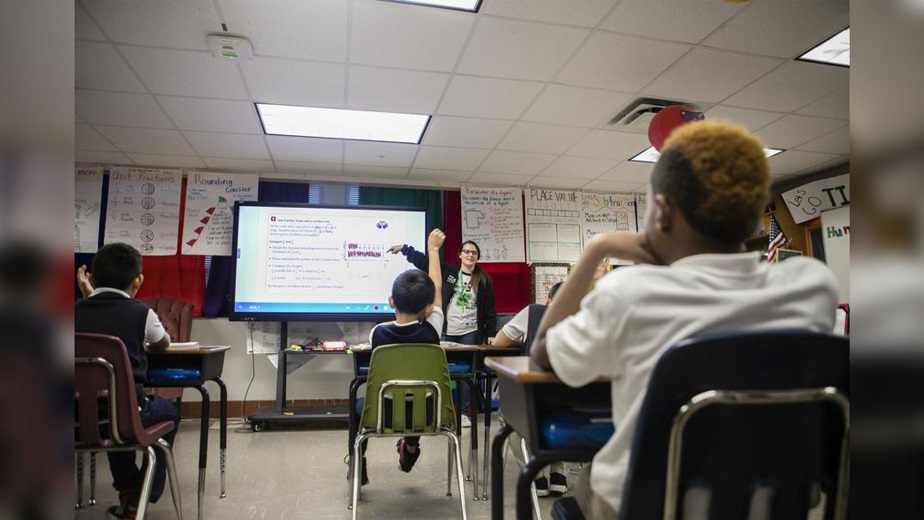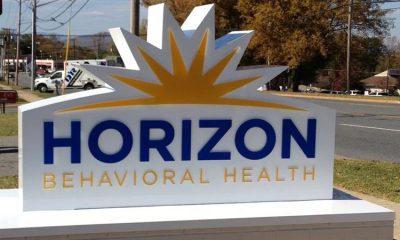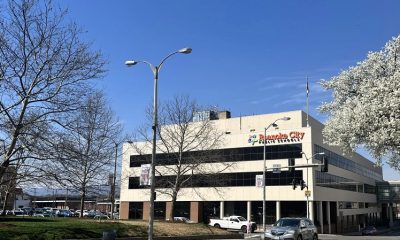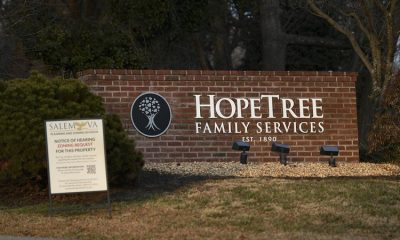U. S. News
Texas House passes bills to address teacher shortages

The Texas State Teachers Association has recently published a report indicating that an increasing number of educators in Texas are considering leaving their profession, marking a concerning trend that has not been witnessed in over four decades. According to the survey of nearly 700 teachers, 70% of respondents are now “seriously considering” leaving their jobs, a significant spike from 2018, when only 53% of educators were contemplating quitting.
This rising shortage of Texas teachers has led to a high turnover rate in schools across the state. In response, the Texas House has passed two bills aimed at improving funding for schools and providing more support for teachers. HB 11, written by Rep. Harold Dutton, D-Houston, will increase funding for teacher residency and mentorship programs designed to help early-career and aspiring teachers. The bill also enhances the Teacher Incentive Allotment program, which provides additional compensation to exceptional teachers.
Moreover, HB 100, authored by Rep. Ken King, R-Canadian, will increase the amount of money that schools receive from the state and adjust how some funding is determined. The bill also raises the minimum salaries of certain school employees, including teachers, librarians, nurses, and counselors, based on their experience and certification. Both bills are among the top priorities for the current legislative session.
The Texas Teacher Vacancy Task Force, established by Governor Greg Abbott in March 2022, is a coalition of teachers and administrators from across the state that released its final report in February of 2022. The task force offered eight key recommendations to address school staffing issues, including the recruitment and retention of teachers. These recommendations include raising compensation and benefits, providing support for hard-to-staff areas, expanding access to instructional materials, and demonstrating respect for teachers’ time.
The Texas Education Agency has reported that more than 42,800 people, or 11.57% of public and charter school teachers, left their jobs before the 2021-22 school year. This is the highest attrition rate since annual data collection began in 2007-08. However, the agency also reported that schools hired around 43,000 new teachers for the 2021-22 school year.
Public schools in Texas have been facing consistent funding challenges due to lower attendance rates stemming from the COVID-19 pandemic. The Pflugerville Independent School District has previously reported a loss of around $1 million during the last 12 weeks of the 2021-22 school year. As per the basic allotment, state money is allocated to public districts based on regular student attendance, with each student receiving $6,160 per school year. This puts schools at a disadvantage if students are frequently absent, even if day-to-day operations remain unaffected.
Therefore, proponents of public education have urged the Legislature to increase the basic allotment in response to inflation and growing educational costs, according to Dallas Metro News. Raise Your Hand Texas, an education policy group, suggests that the basic allotment should be raised to at least $7,100 with inflationary adjustments.
According to Dutton, HB 11 establishes a new residency program for teachers, enabling aspiring teachers to co-teach in classrooms for one year, following which schools may hire these teachers. The bill builds on a residency program first introduced in 2013. Schools could receive an allotment of $22,000-$42,000 for each resident under the new program, with rural or “high-need” schools potentially qualifying for additional funds. Schools hiring residents in bilingual or special education classrooms would receive an additional $2,000.
HB 100, according to King, is an historic bill that is infusing approximately $4.5 billion into public education and supports critical increases in teacher pay and predictability. The bill would raise the minimum salaries for teachers with at least five years of experience to $45,000 (no teaching certification) and $50,000 (teaching certification). In addition, the new bill increases the basic allotment by $140 over the two next school years and requires that the TEA adjust the basic allotment for inflation every two years. Critics of HB 100, including Rep. Trey Martinez Fischer, D-San Antonio, proposed raising the basic allotment to $6,500 as a means of better supporting teachers and school staff. These proposed amendments were not accepted. The bill additionally provides funding for specific programs like early education and gifted and talented classes on an enrollment basis. HB 11 has been approved by the House with a vote of 145-3 and will now head to the Senate. HB 100 has similarly been approved by the House with a vote of 141-3 and is set to head to the Senate.
-

 Local News2 weeks ago
Local News2 weeks agoThe first cancer patient food pantry opens in Roanoke at a clinic
-

 Virginia2 weeks ago
Virginia2 weeks agoVirginia keeps an eye out for bird flu
-

 Local News2 weeks ago
Local News2 weeks agoCeremony honors Vietnam veterans
-

 Virginia1 week ago
Virginia1 week agoParents in Lynchburg express concern about the lack of transparency surrounding school budget projections
-

 Local News2 weeks ago
Local News2 weeks agoHorizon Behavioral Health celebrates 55 years of service in Central Virginia
-

 Local News6 days ago
Local News6 days agoHillsville locals awaken to scenes of devastation following a powerful storm
-

 Local News1 week ago
Local News1 week agoRoanoke middle schools will launch a gun violence prevention program this summer
-

 Local News1 week ago
Local News1 week agoSalem Planning Commission votes yes for HopeTree rezoning






Leave a Reply